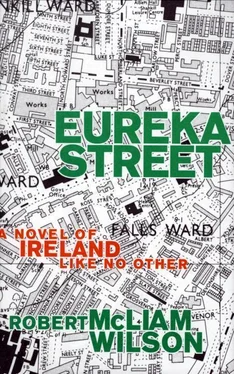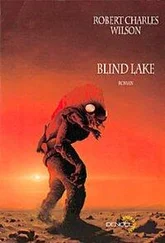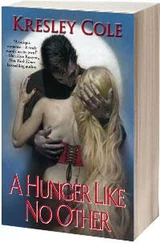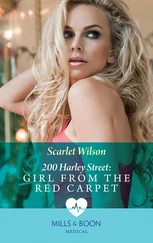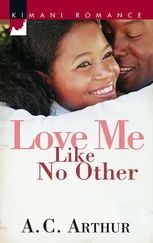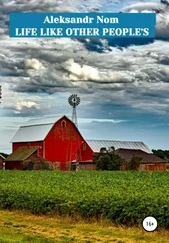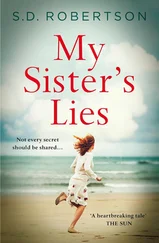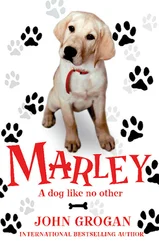As I waited at the pedestrian lights to cross into Bedford Street, a youngish mother walked past me wheeling a threeyear-old boy in a pram. The mother ignored my casual glance but the little boy looked straight at me.
`Keep it country,' he said ringingly.
'OK,' I replied.
Amongst the gossip that I hadn't related to Deasley was a piece of news I couldn't share. The people I knew had taken to confiding in me recently. Perhaps their confidences were provoked or encouraged by the aura of failure and celibacy I was giving off. It was worrying when too many people liked you. Mass likeability wasn't always a good sign.
Luke Findlater told me his big secret. He had been bothering everyone since I'd met him. It felt strange to have him around. It was odd to have such a piece of star material play such an incidental role. His work for Chuckle, although demanding and important, obviously wasn't the major part of his narrative.
What was he doing in Ireland? He had come up with several excuses. Tired of the London and international rat-race. Fond of the countryside. Liked the natives and all that. But one afternoon, in the office, he turned to me and told me the real reason.
He had first come here a year ago. He had to negotiate a land sale in Derry and flew over the evening before his meeting. He checked into a Waterside hotel, grateful that it had running water and electricity. He called the lawyer he would be dealing with and arranged their agenda for the next day. The lawyer invited him to dinner. Luke refused politely. He wanted to take a look round this new town. This famous place. He showered. He dressed and he hit the streets.
And that was fatal. His life had been so simple to him before he had stepped so Englishly out there. As his foot hit the crooked Irish pavement of Shipquay Street, he knew that he felt good, elated even, but he scarcely knew how much had changed, how big that irrevocable step had been.
What was it?
Well, certainly the evening was all banked, sloping cloud, warm air and heady crepuscular stuff; certainly, he felt good in shapely tweed suit, open-necked white shirt, handsome hair and kissable face; certainly he was twenty-seven, rich, privileged, healthy and happy, but it was something else.
The first thing he saw was a group of six men walking together towards him. Drinking friends, they were not yet drunk but already boisterous. They all wore jeans and fake leather jackets, grey shoes and white socks. None was taller than five feet six, all were variously overweight and unhealthy, they all had moustaches.
The second thing he saw was a group of four men miracu lously like the first six, only much uglier.
The third thing he saw was a trio of Derrymen. He began to think they were all brothers.
Luke began to feel like Helen of Troy or Rudolph Valentino. He was stupidly handsome, arrestably beautiful amongst these troglodytic Hibernian half nen. In the hour he walked around the town, he saw one man only who could be considered even close to six feet tall and none at all who could be conceived of as handsome. The women he saw were normal. They were like women everywhere he'd been, mostly beautiful, mostly possible to love. They wore more make-up here and their hair often seemed stiff with unguents and sprays but they were recognizably of his own species.
He shook his head to himself at this disparity. How unfortunate for the women. If all of the men of this country looked like that it would be an easy country in which to shine, in which to seduce. In Northern Ireland, a handsome man would be a god.
Sometimes the concept that changes lives arrives unheralded. The invention of the wheel, the printing press, the theory of relativity. It slips unbidden into someone's thoughts and for some time it lurks like an unexploded bomb. Often, it is only after some time has passed that its nature is understood. But at the door of the Gweedore bar, Luke rested his hand on the broad brass handle and paused. He breathed deeply and understood his destiny. He smiled, he went into the bar and started realizing that destiny.
After a week there had been Saoirse, Siobhan and Deirdre. By a fortnight, Sinead and Aoife had added their contributions, the third saw the advent of Orla, Una and Roisin.
Luke was proud. He was not an arrogant man. He had never before practised such promiscuity. He tried not to triumph but it was hard. These girls liked him so very much. He was not unaccustomed to being found attractive but there was an excess to this, a frenzy, that sometimes disturbed him. Whenever it disturbed him most, he simply walked the streets and inspected the men's white socks, moustaches and windcheaters again. He could only concede that he was different. That there might be something to like.
He went to Belfast and quickly rented an apartment there. He had barely worked for three weeks but he cared little. He called a couple of people in London and New York. He told them that Ireland was the coming place and that he had decided he needed to be on hand. He could still work contracts elsewhere. The place had airports. A fortnight later, he was working again.
It was a place that suited him. It was a life for which he had been made. He was besotted with Irish girls because they were so easily besotted with him. Elegantly, handsomely, he had dated twenty-four working-class Irish girls in his first four months on the island. He loved them for their vigour, their vulgarity — he loved the whole sublime atmosphere of post-colonial eroticism. Most of them were gobsmacked by his looks, his eloquence, his sophistication and his unarguable poshness. The others just thought he was gorgeous, great in the sack and they tolerated the rest.
He knew that it was wrong. The crucial element was con- descension.They had to be both surprised and honoured by his attention. In surrendering his birthright amongst these women, he was crucially rewarded for being his graceful, accomplished self. There was also a gentle pleasure in playing out an extra life-size version of himself in their back-street world of tiny interiors, where he glittered like some exotic beast amongst their colourful (sometimes criminal) parents and gum-chewing siblings.
After five or six months, he began to feel guilty. He felt then that he had used up the thrill of dating yob Irish girls. If he was becoming scrupulous, then the reason had gone. He thought briefly about going to South Africa to scour the townships and see how he fared amongst the surprised and grateful black girls.
But he fought his way through the intermittent prickings of his conscience and started all over again. Belfast, Derry, Lurgan, Antrim, Ballymena, Enniskillen, Portadown. They gave their daughters to him. He felt that he exploited no one and no one exploited him. If he gave them a small part of the joy and gratitude that they made him feel then it was no robbery.
They were funny, these Deirdres, these Siobhans. They were fun, these Aoifes, these Sineads. They gave him so much — pleasure, happiness. There was much of beauty in the exchange and more tenderness than might be supposed. But the best thing they gave him was their version of him. For them, he was something special, something unique. He knew that, to them, it must have seemed really great to be him.
When they were around, these Orlas, these Mauras, these Medbhs, they were was really great to be him.
Slat Sloane had only recently confessed a tandem peccadillo to me. Slat was the only socialist I knew. Slat was the only socialist any of us knew. But Slat told me that because of an erotic incident during the last election with a Democratic Unionist Party canvasser called Margaret, he could now only sleep with right-wing women. It was the only thing that worked for him. The more overtly Nazi the better. DUP women were wonderful, naturally, but he coveted Free Presbyterian females.
Читать дальше
